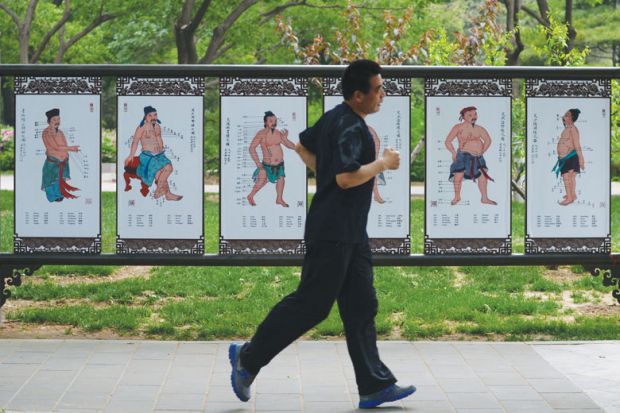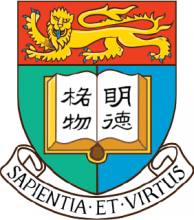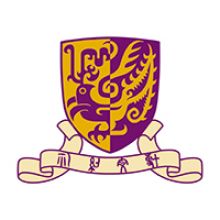Hong Kong’s highly internationalised universities are being drawn into a broader drive to give traditional Chinese medicine academic legitimacy on the world stage through evidence-based research.
The most significant step is a HK$500 million (£46 million) allocation for traditional Chinese medicine (TCM) in the Hong Kong government’s 2021 budget. That sum will help to bankroll the construction of the city’s first Chinese medicine hospital, scheduled to open in 2025 under the auspices of Hong Kong Baptist University (HKBU).
“There are some people who see Chinese medicine as something traditional and perhaps not as valid. We want to elevate it,” said Alexander Wai, who took over as HKBU’s vice-chancellor earlier this year. “We want to transform academic disciplines like Chinese medicine with the application of technology.
“There is no future in limiting what subjects you can teach. We want to internationalise Chinese medicine.”
Bian Zhaoxiang, who is associate vice-president (Chinese medicine development) at HKBU, said the hospital would allow for greater quality control and research focused on Chinese medicine, describing Hong Kong as a “unique place” that combined both Chinese knowledge and global universities.
“We hope to create a platform to introduce TCM to the world,” Professor Bian said.
Traditional Chinese healing – including the use of herbs, minerals and animal products, and practices such as acupuncture – has been used for centuries in Hong Kong and is a part of daily life. The city has about 10,000 traditional Chinese medicine practitioners, along with the 15,000 doctors trained in conventional or Western medicine.
However, the field of traditional Chinese medicine received Hong Kong government recognition only after the end of British colonial rule in 1997.
The following year, the University of Hong Kong (HKU) and the Chinese University of Hong Kong (CUHK) opened Chinese medical schools. In 1999, HKBU became the first Hong Kong university to offer publicly funded undergraduate degrees in Chinese medicine and pharmacy, with HKU and CUHK adding similar programmes a few years later.
Now HKU is seeking government approval for a new laboratory complex to support its six undergraduate medical programmes, one of which is focused on Chinese therapies.
There are parallel developments in Macao, another Chinese special administrative region a short ferry ride from Hong Kong. Soon after that city’s handover from Portuguese to Chinese rule in 1999, the Macau University of Science and Technology opened a Chinese medicine faculty and undergraduate programme, in 2000, while the University of Macau established an Institute of Chinese Medical Sciences in 2002.
In mainland China, there have long been universities and institutes dedicated to traditional Chinese medicine, in Beijing, Shanghai, Nanjing and Guangzhou.
The field was given a boost of mainstream recognition in 2015 when Tu Youyou became the first Chinese national to win a Nobel Prize in Medicine, for her discovery of artemisinin, a malaria treatment based on a Chinese herbal extract.
In May of this year, Tsinghua University launched the Beijing Institute of Traditional Chinese Medicine, an interdisciplinary research centre bringing together different departments for the “innovation and development of Chinese medicine”.
Aside from government initiatives, medical practitioners have been advocating for a more holistic approach to the field. In June, experts published a letter in the Hong Kong Medical Journal calling for greater integration between the two types of medical disciplines.
“[Traditional Chinese medicine] practitioners have an important role to contribute in sharing the health burden in the current Covid-19 pandemic,” they write, adding that “the role of the discipline is limited and needs deliberation and recognition”.
Ellis Kam Lun Hon, a co-author of that letter and an honorary clinical professor at CUHK’s Institute of Integrative Medicine, said “teaching and research in this field is crucial, in order to lend it credibility”.
He warned that popular use of Chinese folk or herbal medicine alone, without professional scientific oversight or evidence-based research, could lead to “dangerous pseudoscience”.
Dr Hon, who is trained in conventional medicine, also stressed the need for “integrative medicine, which means something that is not exclusively Chinese or Western medicine, but a combination of the two”.
He noted that Canada, Germany, Australia and other countries were also developing their own fields of herbal medicine.
Worldwide, academia is becoming more open to incorporating indigenous wisdom. Arctic researchers have called for greater funding for and recognition of indigenous knowledge, especially in understanding the local environment. Indigenous research in Australia and New Zealand is also growing in prominence.
POSTSCRIPT:
Print headline: Hong Kong to give Chinese medicine thorough check-up
Register to continue
Why register?
- Registration is free and only takes a moment
- Once registered, you can read 3 articles a month
- Sign up for our newsletter
Subscribe
Or subscribe for unlimited access to:
- Unlimited access to news, views, insights & reviews
- Digital editions
- Digital access to THE’s university and college rankings analysis
Already registered or a current subscriber? Login












